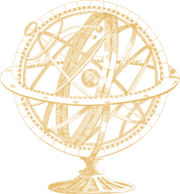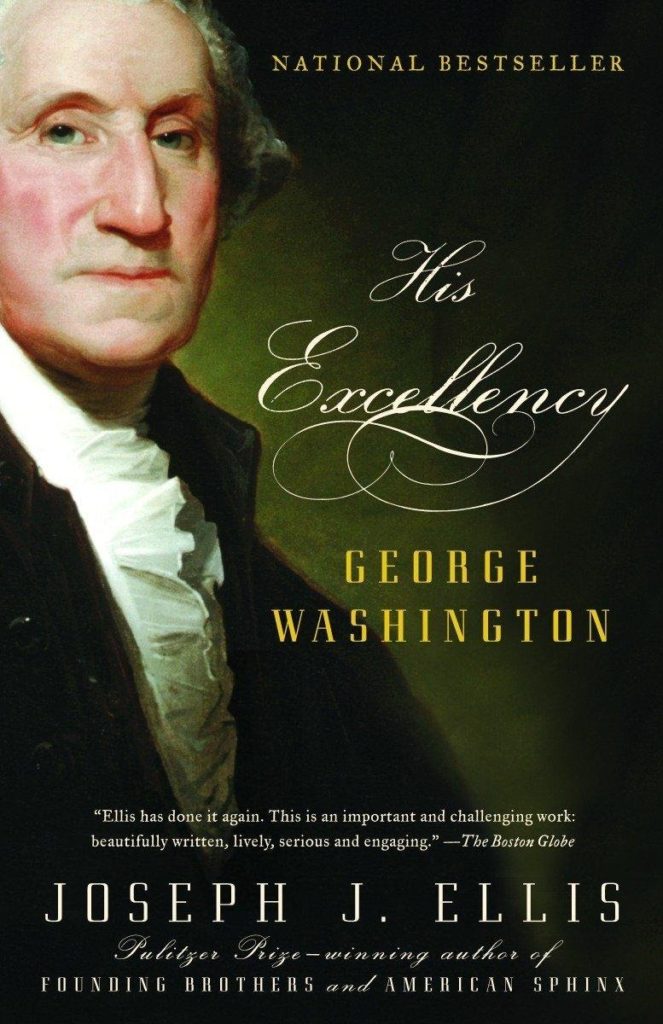“However unimportant America may be considered at present, there will assuredly come a day when this country will have some weight in the scale of Empires.”
George Washington in a letter to Marquis de Lafayette in 1786
There are more than 900 books about George Washington. When presented (and immediately overwhelmed) with this paradox of choice, I did what most people do in modern times. I asked the Internet. And wouldn’t you know, in addition to the rankings on sites like Good Reads and Amazon, you can find this little gem: bestpresidentialbios.com. Yes, there really is a site about the literary adventures of an investment banker/American history supergeek that spent six years reading 240 biographies from Washington to Obama. While I would cross-reference other sites for advice, this would be the well to which I would return many times.
Starting my own much more modest quest I wanted to make sure I read a book of respectable weight, but also not get so bogged down in Round 1 that I gave up the fight before it really began. Firing up the oft-used local library website, I requested what seemed the consensus two best GW biographies and had them shipped to my local branch. When I picked them up I found one reasonably thick, glossy paperback next to what seemed to be the scale model of the monolith in 2001: A Space Odyssey. While I quickly made the decision to check out the smaller one – Joseph J. Ellis’ His Excellency: George Washington – I still feel a twinge of guilt when I see Ron Chernow’s Washington: A Life at a book store. Up on that high horse, both looking back in judgement.
Book selected, I began the quest. So, what did I learn about the Father of the Nation? In many ways, he lived up to the hype. That’s saying a lot for a guy on multiple pieces of currency and the biggest schnoz on Mount Rushmore. He was a big cat, broad shouldered and well over 6 feet tall, a veritable giant in his day. He glided across the dance floor. He chatted easily with women. He had an almost mystic quality on the battlefield; bullet holes piercing his clothing and multiple horses shot from under him, yet somehow always escaping completely unscathed. He had a resolve for greatness and good luck to boot; James Bond in knee breaches.
It is the pragmatism that struck me most about Washington the Leader. He seemed to understand intuitively the political realities around him. He understood early that alliance with the Native Americans was much more crucial for control of the American interior than with the British troops. In foreign policy, he saw that every country is out for itself: “There can be no greater error to expect, or calculate upon real favours from Nation to Nation. ‘Tis an illusion which experience must cure, which a just pride ought to discard.” When campaigning for the House of Burgesses in Virginia, he ran a tab at four taverns to provide rum, wine and beer by the gallon at the polls. A lust for land and social standing was aided greatly by his marriage to the rich widow Martha Custis.
The most sweeping example of his pragmatic ways may have been his stance on vaccination. More than two-thirds of the deaths during the American Revolution were to disease. With most of the war years occurring during a virulent smallpox epidemic that killed almost 100,000 people, British soldiers fared far better. Smallpox had been in their European home countries for generations whereas in the Americas it was new to most. Washington had been exposed to the disease as a child when on a trip to Barbados (the only trip abroad in his life) and was thus immune. He insisted on inoculating his troops and this was arguably his most consequential field-level decision in the winning of the war. Striking a heavy blow to the anti-vax movement, Father George proved that getting your shots (or cuts to the hand, as it were) is the most patriotic thing you can do.
Pragmatism and mystique aside, G Dubs had his shortcomings. The “peculiar institution” of slavery would plague him his entire life. A slave owner himself, President Washington realized immediately that various wonts of divergent regions would make national unity and sweeping reforms impossible. He refused to deal with slavery at a national level, fearing it would rend apart the newly born nation. He would start a long line of presidential kicking-the-can-down-the-road on the enslavement question always hoping, but never pushing hard enough, for its demise. While his personal views about ending slavery became more enlightened over the course of his life (like freeing his slaves upon his wife Martha’s death in his will), we can never stray too far from the raw reality that Washington kept hundreds of humans in bondage for decades.
On the “Indian problem” too his high ideals could not surpass the madness of the crowd. As the author tells it, Washington’s personal feeling towards Native Americans was unambiguous: “Indians being the prior occupants possess the right of the Soil…To dispossess them…would be a gross violation of the fundamental Laws of Nature and of that distributive Justice which is the glory of a nation.” He wanted to make peace with the tribes and work around them, but ultimately had to face the harsh reality that the wave of white immigration westward would overrun this possibility. He spent most of his first term searching for a compromised peace, but ultimately failed.
Maybe Washington’s greatest trait, and what endears him to the annals of history, is his rare and remarkable transition from conquering hero to benevolent, if reluctant, head of the new empire. Writing to his brother in arms Horatio Gates upon hearing of his unanimous election he wrote, “My movements to the chair of Government will be accompanied with feelings not unlike those of a culprit who is going to the place of his execution.” He was like Pacino in Godfather Part III, Just when I thought I was out, they pull me back in! After eight years of seeing his men without shoes and clothing in winter, short on food and unpaid, all for want of tax revenue, he pushed for a stronger central government. He felt it was the only way to coerce the states into providing enough funding and ample recruits to properly outfit the defenses necessary to maintain the nation. A narrative that this agenda smacked of tyrannical monarchy would dog him all his term, but he brushed it aside. Despite no mention of term limits in the Constitution (those wouldn’t appear until the 22nd Amendment was ratified in 1951) Washington decided to retire after his second administration ended.
Having no biological children of his own, America was George Washington’s only child. And like any newborn without siblings, the child was wont to temper tantrums (The Shay’s and Whiskey Rebellions), mercurial behavior (the beginnings of the two party system) absurd demands of ownership (fugitive slave laws), not wanting to play with big meanies (anger at the Jay Treaty with Britain), refusing to be told what to do (States Rights!) and not wanting to share with others (Manifest Destiny!).
The Father of the Nation had to guide these impulses with a sure and steady hand. By all accounts he did so, keeping the fragile Union in one piece, diplomatically avoiding further war, and building the framework for what would become the most prosperous country in history. Yet his legacy remains complicated. He was often thin-skinned to criticism and indecisive on the battlefield. Despite the imagination of Parson Weems, he actually told lies frequently, usually to keep his reputation in tact (and he never chopped down that cherry tree). Lastly, and most problematic, freeing a nation while enslaving individuals is an impossible circle to square.
“The foundation of our Empire was not laid in the gloomy age of Ignorance and Suspicion, but at an Epoch when the rights of mankind were better understood and more clearly defined, then at any former period. At this auspicious period, the United States came into existence as a Nation, and if their Citizens should not be completely free and happy, the fault will be entirely their own.” He was willing to lead, but he put the onus of success squarely on the American people. Do your best, kids. Make Papa proud.
Trivia
- Didn’t really have wooden teeth, but he did have some ivory dentures and only one real tooth at his inauguration.
- Didn’t really throw a silver dollar across the Potomac. It’s impossible from Mt Vernon, where the river is a mile wide. And silver dollars didn’t exist until he was 62 years old.
- Started the French & Indian War. With a band of Indians, he killed a French emissary, taking a scalp and all.
- Only president elected unanimously (and twice, at that)
- Washington, D.C. – Picked the site, the architects, and the sites of the White House and Capitol Building. He believed the Potomac connected to a waterway system spanning the continent and held the path to the elusive Northwest Passage. (Spoiler alert: it does not.)
- Five states were added to the Union during his presidency – NC, RI, VT, KY & TN (the 13 colonies became states before his election)
- Didn’t sign the Declaration of Independence – he was in the field commanding the army.
- One of two future presidents to sign the Constitution (James Madison is the other).
Follow-up Reading:
- You Never Forget Your First by Alexis Coe
- The Only Unavoidable Subject of Regret by Mary V Thompson
- Washington: A Life by Ron Chernow (so they’ll stop staring at me)
Jump to a President!
- George Washington | America Was An Only Child
- John Adams | Popularity Was Never My Mistress
- Thomas Jefferson | Freedom Ain’t Free
- James Madison | The Pen Is Mightier, Especially When You’re 5’4
- James Monroe | Can You Tell Me The Way to Liberia?
- John Quincy Adams | How Unpardonable To Have Been a Blockhead
- Andrew Jackson | The Indian Menace
- Martin Van Buren | The Resort of Genius
- William Henry Harrison | Don’t Drink the Water (and Wear a Coat)
- John Tyler | Veto Corleone
- James K. Polk | Get ‘er Done
- Zachary Taylor | Old Rough & Ready (Don’t Drink the Water Part II)
- Millard Fillmore | I Know Nothing
- Franklin Pierce | Frank the Tank
- James Buchanan | When Everything Went South
- Abraham Lincoln | The Occasion Is Piled High With Difficulty, And We Must Rise
- Andrew Johnson | From First to Worst
- Ulysses S. Grant | The Right Brand of Whiskey
- Rutherford B. Hayes | Here For a Good Time, Not a Long Time
- James A. Garfield | The Destiny of the Republic
- Chester Arthur | The Dude President
- Grover Cleveland | The Buffalo Hangman
- Benjamin Harrison | It’s All About the Harrisons, Baby
- Grover again
- William McKinley | The Tipping Point
- Theodore Roosevelt | The Man In The Arena
- William Howard Taft | The Sofa of the Law Department
- Woodrow Wilson | Tragic Events Have Made Us Citizens of the World
- Warren G. Harding | Good Looks, a Bad Ticker and a Teapot Full of Scandal
- Calvin Coolidge | The Words of a President Have Enormous Weight
- Herbert Hoover | Wonder Boy Gets The Big Chair
- Franklin D. Roosevelt | The Days Ahead Will Be Crowded Days
- Harry S. Truman | He Just Dropped Into the Slot

